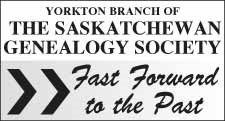If you are working on your family tree, it is important to know basic information about how genealogy is recorded in the country where you ancestors came from; this will help in your search.
A fascinating article by Miriam Klaassen entitled "Researching Your Dutch Ancestors" talks about many small details that could potentially throw off your research if you are not aware of them. For example, the format of day-month-year is used for listing dates in the Netherlands. So a date of 08/06/42 would be June 8, 1942, not August 6, 1942.
If you are looking up females relatives, remember that official documents will have the maiden name of a married woman.
More about last names: the Emperor Napoleon made last names mandatory in the Netherlands in 1811. Some family names were chosen by where they lived (for example, Van Der Berg, of the mountain) while other names were chosen because of an occupation. Some last names were taken from first names.
Consider this excerpt from the article: "Before 1811 everyone who had no surname was called by his or her first name, followed by the name of the father. If there was e.g. a father Klaas with a son Jan, the son was named Jan Klaassen or Klaasz. Even if the family had a surname, for example Bakker, the name of the father was often included. So the son was Jan Klaasz Bakker." Depending on your research, you might be able to discover two ancestor's names while researching one!
But be aware that some members of the same family might have had different names, simply because of their occupation. Another excerpt from Ms. Klaassen's article: "If a certain shoemaker signed with his first name and his occupation (Schoenmaker), maybe his children also signed with the same surname. But if his son became a carpenter, it is possible that the last name of the son was Timmerman. Sometimes nicknames became real names".
If you are researching family from the Netherlands, you will find it helpful to obtain information about the Dutch words and their abbreviations that are used in many genealogy records. For example, "wed." stands for "weduwnaar" which means "widow". "knd." is "kind" which means "child". "overl." is "overleden" which means "died". Having a glossary handy of all these terms would certainly make your research easier.
These are some of the issues to consider when researching family in the Netherlands; be aware that other countries may have their own unique way of recording genealogy, so be aware and be prepared when you start your research.
The Yorkton branch of the Saskatchewan Genealogy Society will be holding their next meeting on Tuesday, March 12 at 7:00 p.m. at the Western Development Museum. Guest John Oystryk will be speaking on cemetery research. Everyone is welcome to attend. For more information about the meeting or the group, please call Dave at 783-1093 or Glenn at 782-7969.
Every family has a story; discover yours and "fast forward to the past" with the Yorkton Branch of the Saskatchewan Genealogy Society!




